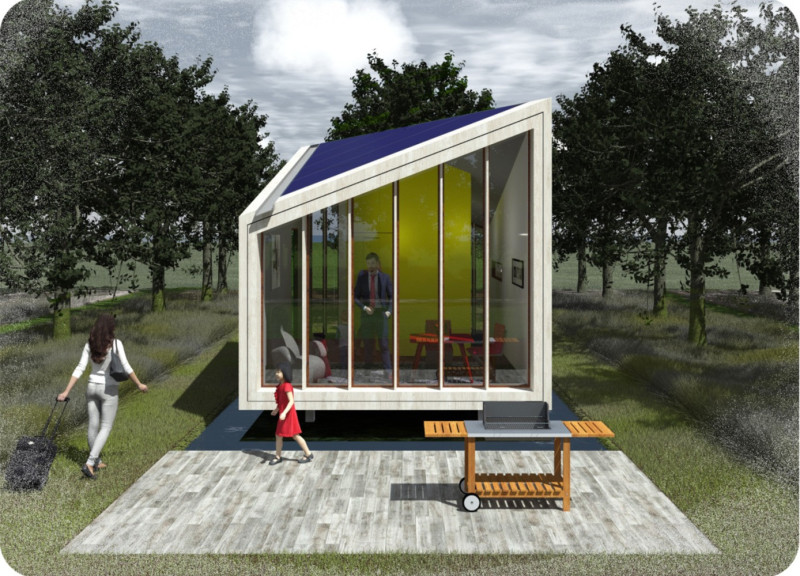5 key facts about this project
"The Crescent," located in Skrunda, offers a thoughtful interaction with its wide natural setting. The project features a series of cabins arranged in a crescent shape, creating a distinct environment within an otherwise open landscape. By incorporating both nature and architecture, the design emphasizes a harmonious relationship with the surroundings, catering to the needs of modern users.
Design Approach
The design seeks to enhance the existing landscape rather than replace it. By adding trees strategically, the project defines the open space while enriching the visual character of the area. The layout of the cabins within this framework fosters a sense of belonging, encouraging an immersive experience in the peaceful surroundings.
Spatial Layout
The arrangement includes essential living spaces such as areas for sleeping, cooking, bathing, and technical functions. This careful organization promotes comfort and accessibility, allowing for a practical living experience. Each space has been designed to encourage social connections, reflecting contemporary lifestyle choices.
Geometric Design
An important aspect of the cabins is their connection to the golden ratio, visible in both the floor plans and the elevations. The diagonal shapes of the roofs contribute to structural stability through their geometric form. This attention to proportion not only reinforces the buildings but also creates a sense of balance that integrates the cabins with the natural environment.
Sustainability Considerations
Sustainability is a key focus of the design. Solar panels are incorporated to provide energy for essential functions like lighting and cooking. Additionally, the roofs are designed to capture rainwater, allowing for its practical use. Provisions for sanitation reflect a commitment to health and hygiene, necessary for living comfortably outdoors.
The proportions of the cabins and their layout within the crescent create a tranquil atmosphere. This design fosters a deep connection to the landscape, enhancing the overall experience of being in nature, while providing comfort and functionality.






















































